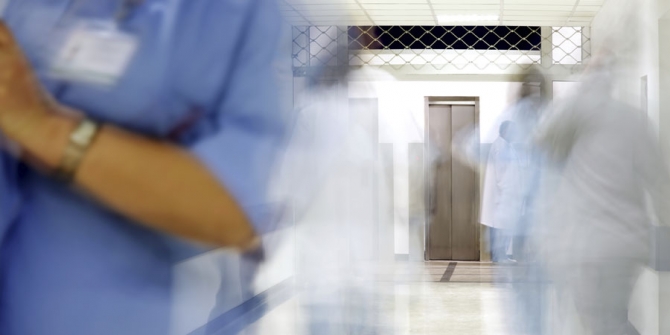Whilst, for many, winter heralds a time for celebrations and get togethers with loved ones, it is a sad fact that it is also marked with a rise in death rates as the annual freeze tightens its grip on the UK.
For health workers in NHS departments already under huge pressure to treat patients in the face of tight budgets, winter can prove to be an incredibly stressful period of excessively long working hours and sometimes impossible demands.
In January this year, a meeting of MPs on the Health Select Committee was told that NHS staff had been going into work voluntarily and unpaid to help hospitals cope with the huge demand. At the time, Labour MP Valerie Vas said she was concerned that staff were ‘working for nothing’ in order to help under-pressure hospitals cope.
Figures show that death rates annually rise by more than 20% over the winter period, with the flu virus and cold snap among the reasons for the spike.
Winter contingency plans are executed in hospitals to cope with the soaring numbers of patients, often leading to the opening up of extra beds to cope. It is sadly a common theme with this route that the quality of patient care is then jeopardised due to the lack of staff to deal effectively with this increase in demand.
Hospitals have a target to see 95% of patients arriving at A&E within four hours, but a report from Monitor showed that in the winter of 2014-15 there was a sharp national decline, with 91% of hos-pital trusts missing the target. The report concluded that half of the drop can be explained by na-tional systemic pressures, while the other half is due to local drivers. The biggest contributor to the decline in performance is said to be ‘hospitals’ inability to accommodate the increase in admissions from A&E departments’.
One NHS nurse, who works in an A&E department, said: “We are always extremely concerned about the winter situation, which is the same across the country. We question the quality of care patients will receive at this time of year when there is a lack of staff to cope with additional beds that are added to cope with increasing numbers of patients.
I came into nursing to make a difference to people in need and it is always a huge concern about how myself and my colleagues can care for patients safely when there are so few staff and equip-ment is in such short supply.
Another, a lone worker who works out in the community, spoke of the pressures of working in-creasing hours in bitterly cold temperatures on dark winter nights. Paramedics on the frontline also face a huge increase in demand as they attend to a huge spike in emergency calls. In winter 2013 London Ambulance Service reported daily calls increasing from 1,200 to 1,800, leading them to have to defend a decision to not attend every single call.
As well as an ageing population, the increase in the cases of flu over the winter period is one of the huge influencers in the death rate rise during winter along with other illnesses associated with the season’s freezing temperatures. In the winter of 2012-13 alone, 31,000 deaths were linked to the cold weather - some due to elderly and vulnerable people suffering due to being unable to pay their electricity and gas bills.
It is not just the increase in potentially life-threatening illnesses that put increasing pressure on health workers but also the surge in accidents, trips and falls associated with the cold weather including icy roads and pavements. Figures also show that between December 2010 - January 19 2011 the number of admissions to A&E departments with the underlying cause being alcohol consumption was 13% above the daily December average as people indulge in more drinking over the festive period. The Saturday before Christmas and New Year’s Day are also traditionally hit by a wave of patients suffering acute intoxication.
For paramedics and frontline health workers, this not only means an increase in workload - but it also can lead to a spike in attacks by intoxicated patients. The Nursing Times recently reported that physical attacks on nurses and other staff working in NHS acute services have gone up by 10% over the past year, rising to more than 19,000 nationally in 2014-15.
Winter can be a time for fun and celebrations. But spare a thought for the thousands of health workers whose job it is to keep us safe and healthy.
Article Code: BLA20158

